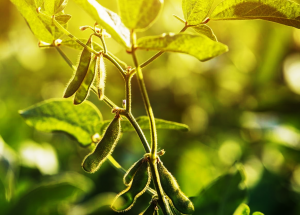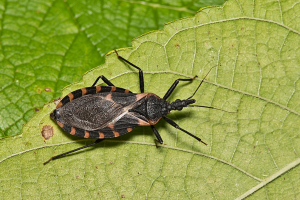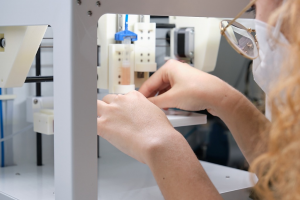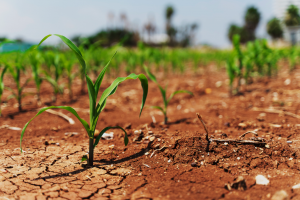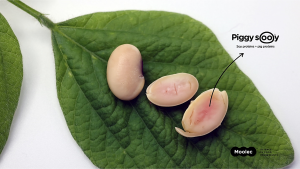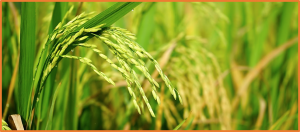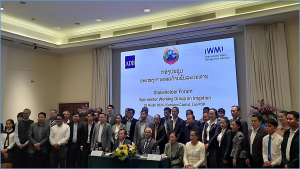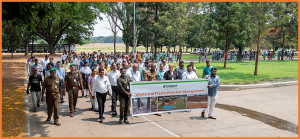Chinese scientists used genetic engineering to produce soybeans that have a high level of herbicide resistance. Soybean is an essential crop due to its oil and proteins. However, its cultivation is affected by weeds. Farmers use herbicides to remove the weeds, which may affect the soybeans. Because of this, herbicide-tolerant varieties are necessary in agriculture. Previous studies discussed the applications of Cas9 base editor systems on soybean but there have been no previous research about Cas12 base editor systems.
The French Agency for Food, Environmental and Occupational Health & Safety openly challenged the main elements of the Commission's 2023 draft legislation on plants edited with New Genomic Techniques (NGTs) in two opinions published in November 2023 and March 2024. The opinions criticized the Commission's criteria for categorizing NGTs, suggesting a case-by-case risk assessment approach.
A study published in The CRISPR Journal shows that gene editing of kissing bugs, a primary vector for Chagas disease, is made possible through CRISPR-Cas9 technology for the first time. This milestone opens up new strategies and opportunities to mitigate Chagas disease. Chagas disease is a significant public health concern, affecting millions of lives in America, particularly in Central and South America.
An Indian researcher reviewed the different applications of 3D printing and bioprinting for the treatment of diabetes. The research may be helpful in the health industry. Diabetes is a disease characterized by elevated blood sugar levels. The disorder can cause health complications, such as nerve damage, chronic kidney disease, and heart disease. However, early and appropriate treatment will help manage diabetes and avoid these complications.
Researchers from the University of Saskatchewan and University of Victoria in Canada analyzed and evaluated peer-reviewed research on the contribution of crop biotechnology to climate change mitigation and adaptation. Their findings, published in GM Crops and Food, with principal author Stuart J. Smyth, focus on genetically modified (GM) traits in major crops and the resulting changes in farming practices. The study concludes that GM crops offer benefits for climate change mitigation.
Moolec Science's genetically engineered soybean with pork proteins known as Piggy Sooy has received the response to their request for regulatory status review from USDA Animal and Plant Health Inspection Service. APHIS concluded that Piggy Sooy is unlikely to pose an increased plant pest risk compared to the conventional soybeans. Thus, it is not subject to the APHIS regulation governing movement of genetic engineered organisms or products.
Southeast Asia produces an estimated 7,767 Gg CH4/year or 194,186 Gg CO2e/year from 48.5 million ha of paddy rice and globally is the region with the second-highest emissions from rice. Vietnam is distinctive in the region for its high proportion of irrigated, rather than rainfed, rice. Of the total annually cultivated rice area of about 3 million hectares, 2.96 million hectares are irrigated and are usually planted with two to three rice crops per year.
Water management for irrigated agriculture was discussed to enhance irrigation efficiencies in the first stakeholder forum of the year 2024 on 20 March 2024 in Vientiane Capital, Laos. The results of the irrigation sub-sector review conducted in 2018/19, was used as inputs for the discussion, in addition the Irrigation Development Plan from 2024-2025 and Vision to 2030 of the Department of Irrigation of the Ministry of Agriculture and Forestry.
Dr Jacqueline Hughes, Director General of ICRISAT, announced the initiative timed to coincide with Earth Day on April 22. "In a week's time, we will eliminate all single use plastic items across our campus, and minimize the use of any disposable plastic items. This action underlines our commitment to this year's Earth Day theme, Planet vs. Plastics," stated Dr Hughes.
Dr Ehui accompanied by World Bank Director of Agriculture for Central Africa Dr Abel Lufafa, visited Cameroon to strengthen partnerships and advance regional agricultural development. During his stay, he engaged in high-level meetings with notable figures, including the World Bank Director of Operations for Cameroon and Central Africa, the African Development Bank (AfDB) Regional Director for Central Africa, and several Ministers from the Cameroon government.


 Curently online :
Curently online :
 Total visitors :
Total visitors :
